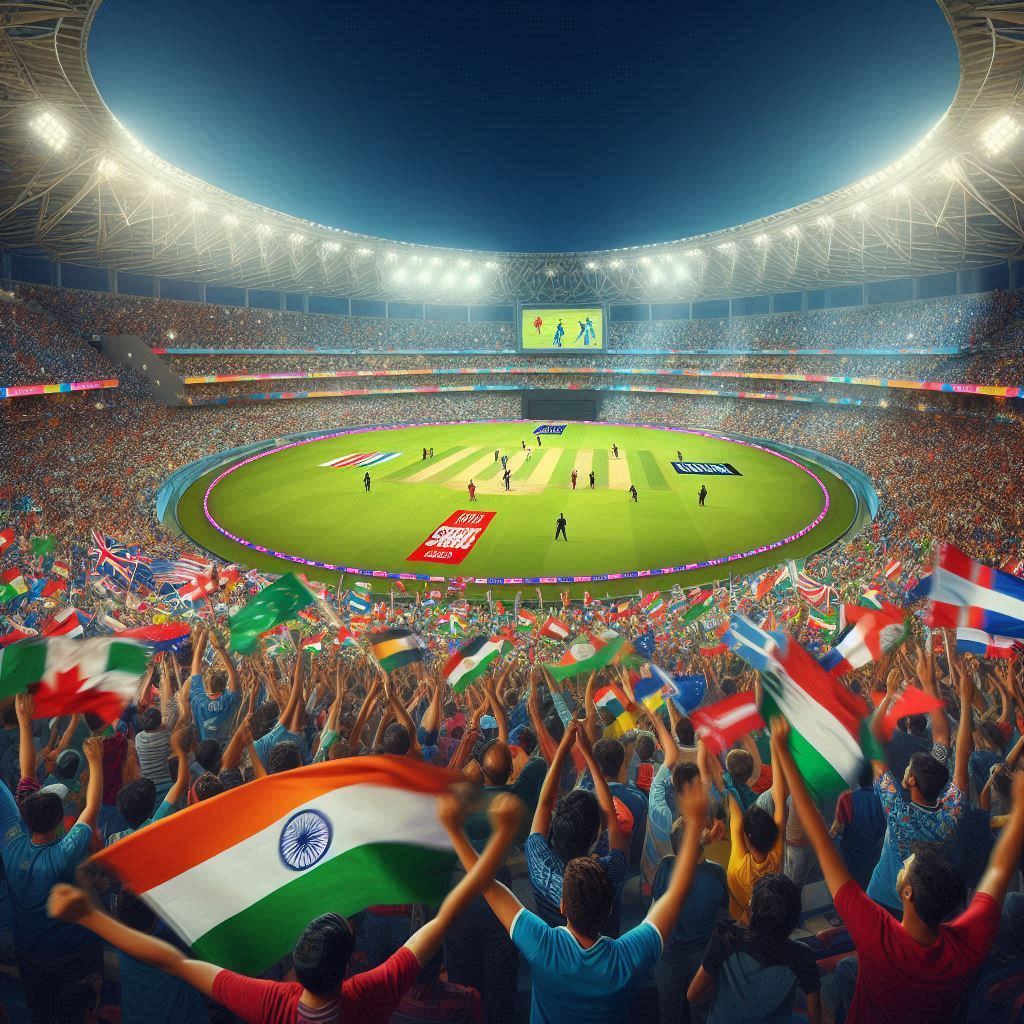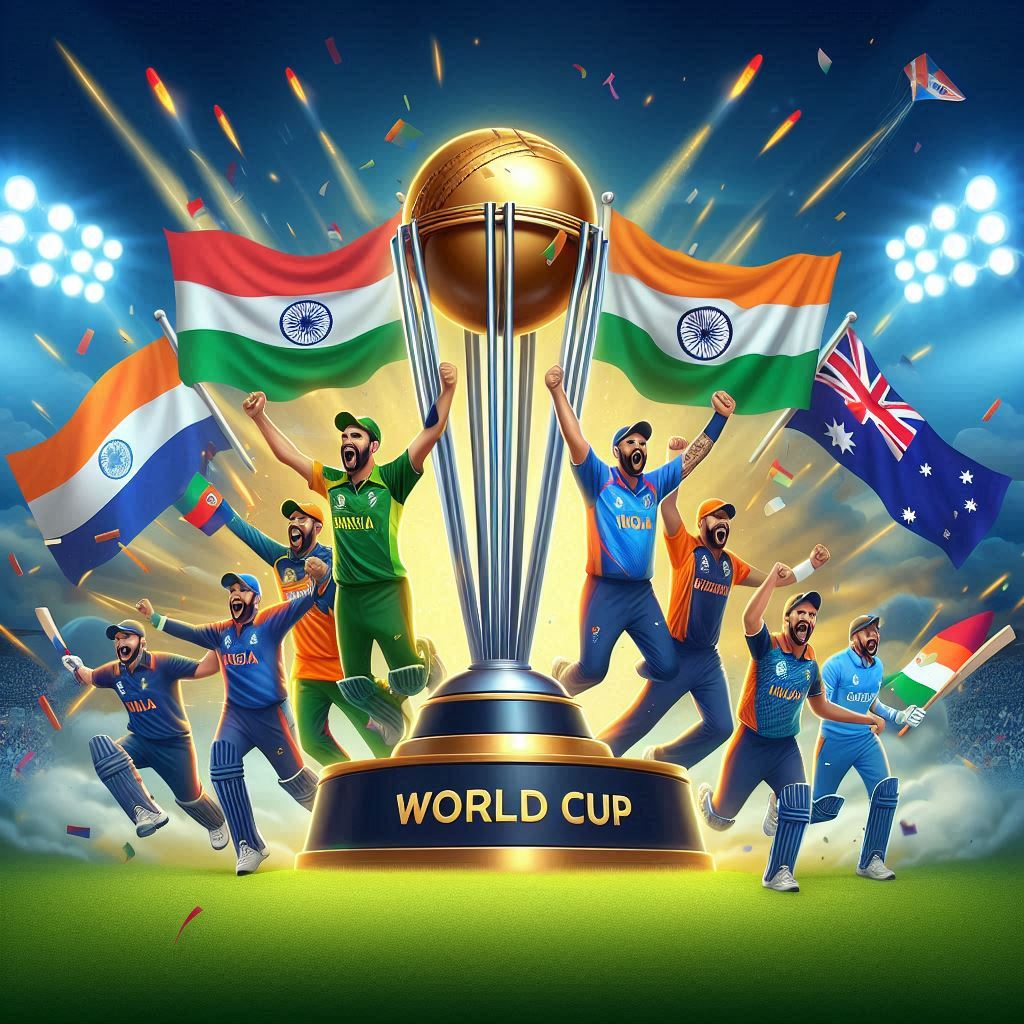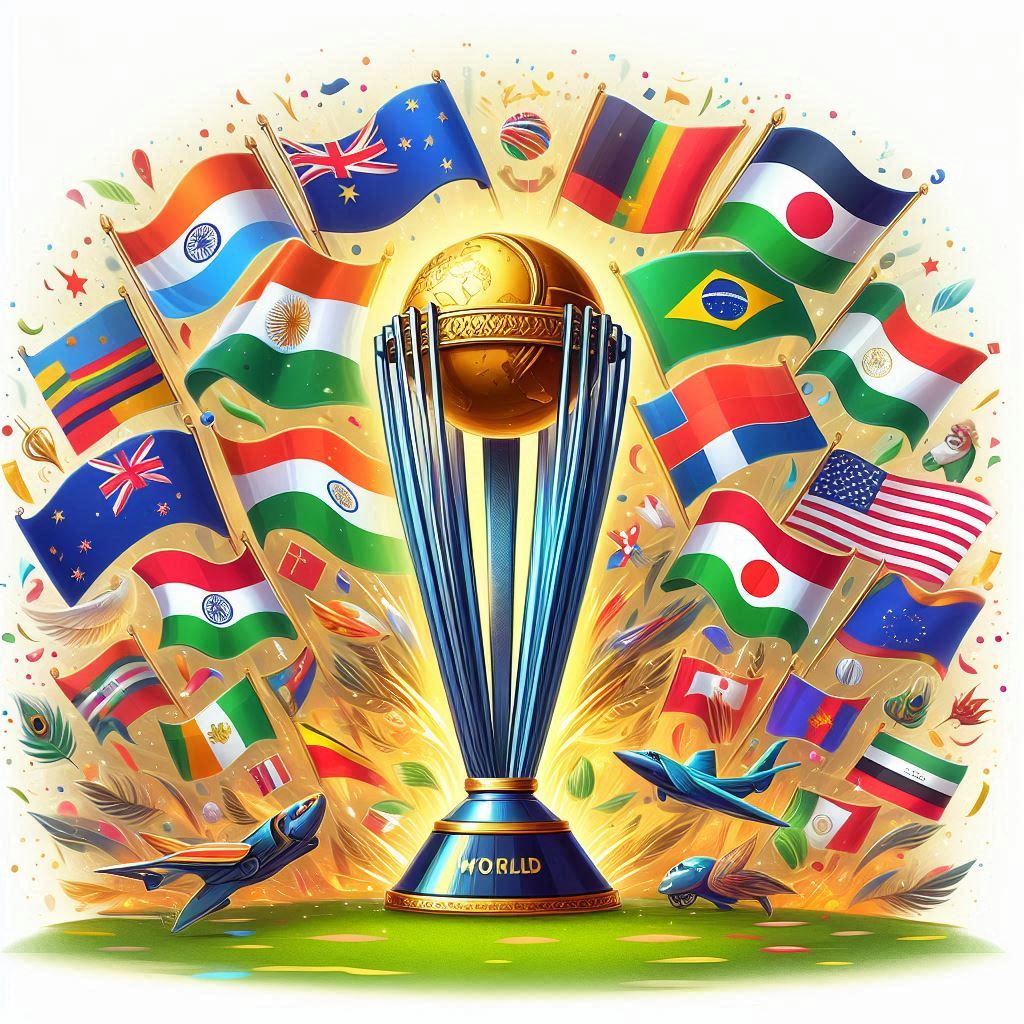2024 ICC Men’s T20 World Cup
The 2024 ICC Men’s T20 World Cup is poised to be a landmark event, bringing together the world’s best T20 cricket teams in a celebration of sport, skill, and global unity. This edition, co-hosted by the West Indies and the United States, marks a significant step in the globalization of cricket. Here’s a detailed analysis of the tournament, focusing on the participating teams, group structure, key players, and more.

Tournament Overview
Dates: June 4 – June 30, 2024
Hosts: West Indies and the United States
Number of Teams: 20
Format: The tournament will be divided into two phases – the First Round and the Super 12s, followed by the knockout stages (semi-finals and final).
Participating Teams
The tournament will feature 20 teams, an increase from the 16 teams that participated in previous editions. The expansion is aimed at providing more opportunities for Associate and emerging cricket nations.
Automatically Qualified Teams (Top 8 ranked teams):
India
England
Australia
Pakistan
New Zealand
South Africa
Sri Lanka
West Indies
Teams through Qualifiers:
The remaining 12 teams will qualify through a series of regional qualifiers held globally. These will include both Full Member nations that did not make the automatic cut and Associate Members.
Potential Qualifier Teams:
Afghanistan
Bangladesh
Netherlands
Scotland
Ireland
Zimbabwe
Namibia
UAE
USA
Oman
Nepal
Papua New Guinea

Tournament Format
First Round:
Group Structure: 20 teams divided into four groups of five teams each.
Matches: In their group Each team will play four matches .
Advancement : From each group the top two teams will advance to the Super 12s stage
Super 12s:
Group Structure: The eight teams that advance from the First Round will join the eight automatically qualified teams, making up two groups of six teams each.
Matches: Each team will play five matches within their group.
Advancement: The top two teams from each group will proceed to the semi-finals.
Knockout Stages:
Semi-Finals: The top two teams from each Super 12s group will face off.
Final: The winners of the semi-finals will compete in the final to determine the champion.
Group Analysis
First Round Groups :
Group A: Afghanistan, Ireland, Scotland, Oman, Nepal
Group B: Bangladesh, UAE, Netherlands, Namibia, Papua New Guinea
Group C: West Indies, Zimbabwe, USA, Qatar, Germany
Group D: Sri Lanka, UAE, Hong Kong, Jersey, Singapore
Super 12s Groups:
The final composition of the Super 12s groups will depend on the results of the First Round. The groups are designed to ensure a competitive mix of teams, balancing the powerhouses with emerging teams.
Group 1: India, South Africa, New Zealand, Australia, Winner Group A, Runner-up Group B
Group 2: England, Pakistan, Sri Lanka, West Indies, Winner Group B, Runner-up Group A
Key Teams and Players to Watch
India :
Key Players: Jasprit Bumrah, Rohit Sharma, Virat Kohli,
Strengths: Deep batting lineup, experienced leadership, versatile bowling attack
Weaknesses: Middle-order inconsistency, fielding lapses
England :
Key Players: Jofra Archer, Ben Stokes, Jos Buttler
Strengths: Aggressive batting, innovative strategies, depth in all-rounders
Weaknesses: Dependence on key players, injury concerns
Australia:
Key Players: Pat Cummins, Glenn Maxwell, David Warner
Strengths: Explosive batting, experienced pace attack, tactical acumen
Weaknesses: Vulnerability in spin bowling, recent form fluctuations
West Indies:
Key Players: Kieron Pollard, Andre Russell, Nicholas Pooran
Strengths: Power hitting, home advantage, T20 experience
Weaknesses: Inconsistency, fitness issues
Pakistan:
Key Players: Shadab Khan, Babar Azam, Shaheen Afridi,
Strengths: Strong top-order batting, potent pace attack, dynamic fielding
Weaknesses: Middle-order instability, pressure handling
Venues and Infrastructure
West Indies Venues:
Kensington Oval, Barbados: A historic ground known for its lively atmosphere and excellent pitch conditions.
Sabina Park, Jamaica: Renowned for its fast bowlers’ paradise pitch and vibrant crowd.
Queen’s Park Oval, Trinidad and Tobago: Offers a balanced wicket with ample support for both batsmen and bowlers.
Providence Stadium, Guyana: Known for its picturesque setting and good batting surface.
United States Venues:
Central Broward Regional Park, Florida: The first ICC-certified cricket stadium in the USA, providing a modern facility for high-quality cricket.
MLC Stadium, Texas: A newly constructed venue designed to meet international standards, aiming to popularize cricket in the region.
Innovations and Technology
Technological Enhancements:
Decision Review System (DRS): Accurate umpiring decisions with help Ensure Advanced ball-tracking and ultra-edge technology.
Player Tracking Systems: Use of GPS and biometric data to monitor player fitness and performance.
Enhanced Broadcast Experience: Use of high-definition cameras, drone shots, and real-time analytics to provide viewers with an immersive experience.
Fan Engagement Initiatives:
Digital Platforms: Interactive social media campaigns, fantasy leagues, and fan polls.
Virtual Reality (VR) and Augmented Reality (AR): Providing fans with immersive experiences and virtual stadium tours.
Impact on Global Cricket
Growth of 2024 T20 World Cup Cricket:
The 2024 T20 World Cup is expected to further popularize T20 cricket globally, particularly in North America. The format’s fast-paced nature and exciting matches are likely to attract new fans and increase viewership.
Opportunities for Associate Nations:
The expanded format allows more Associate Nations to compete, providing them with invaluable experience and exposure. Success in the T20 World Cup can inspire and boost cricket development programs in these countries.
Economic and Cultural Impact :
Hosting the T20 World Cup is set to have significant economic benefits for both the West Indies and the United States. The influx of tourists, media coverage, and sponsorship deals will boost local economies. The tournament will also serve as a cultural exchange platform, showcasing the diversity of the host nations.
Challenges and Controversies
Logistical Challenges :
Organizing a global tournament across two countries presents logistical hurdles, particularly in coordinating travel and scheduling. Ensuring that all venues are ready and meet international standards will require meticulous planning.
Player Workload and Injuries :
Managing player workload will be crucial, given the intense schedule of T20 leagues and international cricket. Teams will need to carefully rotate players and provide adequate rest periods to prevent burnout and injuries.
Ensuring Fair Play :
Maintaining the integrity of the tournament is paramount. The ICC has robust measures in place to address issues such as match-fixing and on-field disputes, ensuring fair play and upholding the spirit of the game.
Conclusion
The 2024 ICC Men’s T20 World Cup promises to be a groundbreaking event, bringing together the best T20 teams from around the world in a celebration of cricket. With its expanded format, innovative technologies, and strategic venue choices, the tournament is set to captivate audiences and further the global reach of the sport. As the cricketing world eagerly anticipates the tournament, the 2024 T20 World Cup is poised to leave a lasting legacy, inspiring future generations and promoting the growth of cricket on a global scale.




